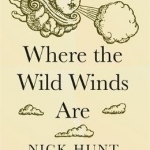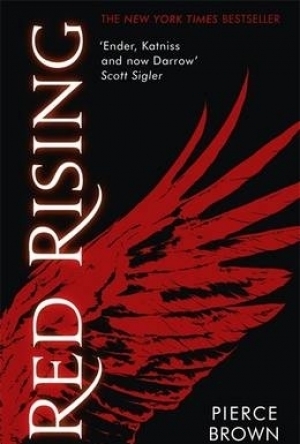
HelloTalk Language Exchange
Education and Social Networking
App
HelloTalk, the 1st global language and culture exchange community, connects you with native speakers...

Gaia GPS Classic
Navigation and Travel
App
►► WARNING - DOWNLOAD THE NEW APP INSTEAD Instead of buying this app (Gaia GPS Classic), please...
Hazel (1853 KP) rated Where the Wild Winds are: Walking Europe's Winds from the Pennines to Provence in Books
Sep 26, 2017
From the moment the great storm of 1987 almost blew six-year-old Nick Hunt away, he has had the urge to travel. So many travel books are on the market, it is difficult to produce something new and exciting, but after coming across an interesting map of Europe, Hunt was determined to go on a journey that not many have attempted before. With a map listing the named winds of Europe, Hunt sets off on a quixotic quest to follow the winds.
Beginning in the Pennine Mountains, Nick Hunt takes the reader on a personal journey through the continent as he explores the towns and valleys the winds flow through whilst hoping the elusive tempests will occur so that he can experience them himself. With a mix of euphoria and disappointment, Hunt details his arduous journey providing additional knowledge along the way.
Some winds are more evanescent than others – one, discouragingly, not appearing at all – whereas one is so strong, Hunt witnesses a waterfall being blown upwards. Ignoring the warnings of the locals, Hunt, dead set on completing what he intended to do, takes us on a long walk from Italy to Croatia, a trek through the Alpine valleys of Switzerland, and a final expedition to the south of France.
Wind may seem like an odd topic to write a book about, but the Helm, Bora, Foehn and Mistral are no ordinary breezes. Their violence makes Hunt’s journey a dangerous and daring endeavour and is full of stories about past disasters that have occurred as a result of the strong, temperamental weather.
As well as teaching us about these four winds, Nick Hunt has collected facts and stories about the general areas he passes through. Personal stories of the inhabitants break up Hunt’s narrative, however, myths, legends, history and superstitions frequent the lengthy chapters as much as the winds themselves.
Giving wind a name provides it with a personality, as though it is something tangible that can be met and observed. Nick Hunt notes that artists such as Turner and Constable were interested in the weather and fascinated by the effects the wind had on the surrounding landscape. Another artist that was affected by the weather was Vincent Van Gogh - some of his paintings took place in France in the midst of the powerful Mistral. Just as the wind can be seen in his starry night skies, the scenery in France is evocative of a Van Gogh painting.
The winds do not only affect the lands they blow through, they have a strong impact on the wellbeing of the inhabitants. Some experience physical symptoms such as headaches, nose bleeds, dry skin and so forth, whereas others find themselves growing irritable, depressed and confused. The author himself has the opportunity to undergo the effects of these winds. Hunt also puts forward the suggestion that Van Gogh’s deteriorating mental health was a direct consequence of residing in the path of the Mistral.
From witchcraft to the Greek god Aeolus, there are a number of theories about why these strong winds blow. There are, of course, meteorological explanations, which Hunt attempts to explain, but admits he finds it as baffling as the next person. Regardless of the reason, these winds exist and it is captivating to learn about this aspect of Europe.
Where the Wild Winds Are: Walking Europe’s Winds from the Pennines to Provence is a fantastic, beautifully written book. Nick Hunt’s narrative is so personal that it becomes more than a travel documentation or informative non-fiction. As we read, we really get a sense of the emotions and physical hardship Hunt experienced, yet, at the same time, learn so much about European culture as well as, of course, Europe’s winds. Whether or not you are interested in travelling, this book will take you on a journey you will never forget.
Hazel (1853 KP) rated Red Rising in Books
May 30, 2017
Red Rising by debut author Pierce Brown is a very difficult book to review. It is clear that Brown is an excellent writer with amazing ideas, but at the same time it does not feel possible to rate the book any higher that two or three stars. This first book of three is somewhat alike The Hunger Games Trilogy by Suzanne Collins and has some very exciting themes. However at other times it provoked a range of emotions from disgust to almost verging on boredom.
Set thousands of years in the future, the world has become colour coded. Gold are the elite, the ruling colour, and at the bottom of the pile are the Reds. Darrow is a Red and lives below the surface of the planet Mars in the mines with the responsibility of helping to make the planet’s surface habitable for humans in the future. He soon discovers that the ruling societies have been lying to him all his life, and to the many generations before him. But there is an uprising brewing and Darrow has been chosen to play a vital role in it, even though that means pretending to be the enemy.
Although it was difficult to get into the novel it appeared to be clear what the plot would be about. Wrong! Once Darrow has been trained to behave like a Gold the storyline changes completely. It is almost as though it is a different book altogether. Red Rising suddenly becomes Hunger Games-esque and the situations with the Reds, while being referred to once or twice, was all but forgotten. Presumably those original themes will continue within the final books of the trilogy.
Living under the surface of Mars with no sunlight speeds up the aging process of the inhabitants. People in the thirties are considered old; therefore even though Darrow is a teenager in Earth years, he is portrayed as a man – an image that is difficult to shake off throughout the entire book. Once Darrow is living with the Golds and, supposedly, resembling his true age, it is still easy to forget that he is young. This may change the way the reader pictures the scenes compared with how the author intended them to be imagined. The characters are still only children but may be mistaken for adults due Darrow’s opening scenes.
It cannot be denied that Brown is a very knowledgeable writer. As well as writing in an exceptionally well-structured way, he incorporates a vast amount of high culture into his story. A lot of the novel is influenced by Greek and Roman mythology and he also quotes famous philosophers such as Cicero and Plato. So despite its science fiction genre it also has a slight educational nature.
Something interesting about Red Rising was the character development of Darrow. At the beginning he was rather naïve, believing everything he was told, following orders etc. But soon he becomes more confident, clever, Gold-like. However he then becomes like a wild beast, killing to survive, to win. Thankfully his cleverness takes control and he realises that he needs to become a leader and not a tyrant. Towards the end he even becomes messiah-like. As Darrow progresses through these changes he becomes a more likable character.
I am not sure whether I want to read the next installment of Red Rising. For the beginning storyline to continue and become the main focus, the book would need to be completely different. This could be a good thing because, as mentioned, there were times when it was a little boring, however there’s the risk that it will not feel like a follow on from the first book. I do not want to put anyone off from reading it, but I will honestly say that it was not really what I was expecting.
From the moment the great storm of 1987 almost blew six-year-old Nick Hunt away, he has had the urge to travel. So many travel books are on the market, it is difficult to produce something new and exciting, but after coming across an interesting map of Europe, Hunt was determined to go on a journey that not many have attempted before. With a map listing the named winds of Europe, Hunt sets off on a quixotic quest to follow the winds.
Beginning in the Pennine Mountains, Nick Hunt takes the reader on a personal journey through the continent as he explores the towns and valleys the winds flow through whilst hoping the elusive tempests will occur so that he can experience them himself. With a mix of euphoria and disappointment, Hunt details his arduous journey providing additional knowledge along the way.
Some winds are more evanescent than others – one, discouragingly, not appearing at all – whereas one is so strong, Hunt witnesses a waterfall being blown upwards. Ignoring the warnings of the locals, Hunt, dead set on completing what he intended to do, takes us on a long walk from Italy to Croatia, a trek through the Alpine valleys of Switzerland, and a final expedition to the south of France.
Wind may seem like an odd topic to write a book about, but the Helm, Bora, Foehn and Mistral are no ordinary breezes. Their violence makes Hunt’s journey a dangerous and daring endeavour and is full of stories about past disasters that have occurred as a result of the strong, temperamental weather.
As well as teaching us about these four winds, Nick Hunt has collected facts and stories about the general areas he passes through. Personal stories of the inhabitants break up Hunt’s narrative, however, myths, legends, history and superstitions frequent the lengthy chapters as much as the winds themselves.
Giving wind a name provides it with a personality, as though it is something tangible that can be met and observed. Nick Hunt notes that artists such as Turner and Constable were interested in the weather and fascinated by the effects the wind had on the surrounding landscape. Another artist that was affected by the weather was Vincent Van Gogh - some of his paintings took place in France in the midst of the powerful Mistral. Just as the wind can be seen in his starry night skies, the scenery in France is evocative of a Van Gogh painting.
The winds do not only affect the lands they blow through, they have a strong impact on the wellbeing of the inhabitants. Some experience physical symptoms such as headaches, nose bleeds, dry skin and so forth, whereas others find themselves growing irritable, depressed and confused. The author himself has the opportunity to undergo the effects of these winds. Hunt also puts forward the suggestion that Van Gogh’s deteriorating mental health was a direct consequence of residing in the path of the Mistral.
From witchcraft to the Greek god Aeolus, there are a number of theories about why these strong winds blow. There are, of course, meteorological explanations, which Hunt attempts to explain, but admits he finds it as baffling as the next person. Regardless of the reason, these winds exist and it is captivating to learn about this aspect of Europe.
<i>Where the Wild Winds Are: Walking Europe’s Winds from the Pennines to Provence</i> is a fantastic, beautifully written book. Nick Hunt’s narrative is so personal that it becomes more than a travel documentation or informative non-fiction. As we read, we really get a sense of the emotions and physical hardship Hunt experienced, yet, at the same time, learn so much about European culture as well as, of course, Europe’s winds. Whether or not you are interested in travelling, this book will take you on a journey you will never forget.

Speech Assistant AAC
Medical and Education
App
Speech Assistant is an AAC app designed for people who are speech impaired. This may be in the case...

OBD Fusion
Travel and Utilities
App
OBD Fusion is an app for your car that allows you to read OBD2 vehicle data directly from your...

Berlin Travel Guide Offline
Travel and Navigation
App
*** cityscouter.com travel guides earned first place in connect magazine’s test of 12 travel...

Summer Heat: A Steamy Romance Collection
Caitlyn Lynch, Christina Rose Andrews, Ariel Bishop, Líadáin Douglas, Annika Steele, Gwen Marshall, Abbigail Clark, Livvy Ward, T.D. Crawls, Ava Bari, Avery J. Heath, Tally Bane, Sera Taíno, Moxie Rivers, Siobhan Kearney, Cynthia Miller and Tricia Ramey
Book
A collection of 17 steamy short stories (5,000 - 10,000 words) by new and established romance...
Anthology Contemporary Romance

Business Card Reader Pro
Business and Utilities
App
"If you're a mobile networker, this is an app you'll definitely like." -TechCrunch Instant...

